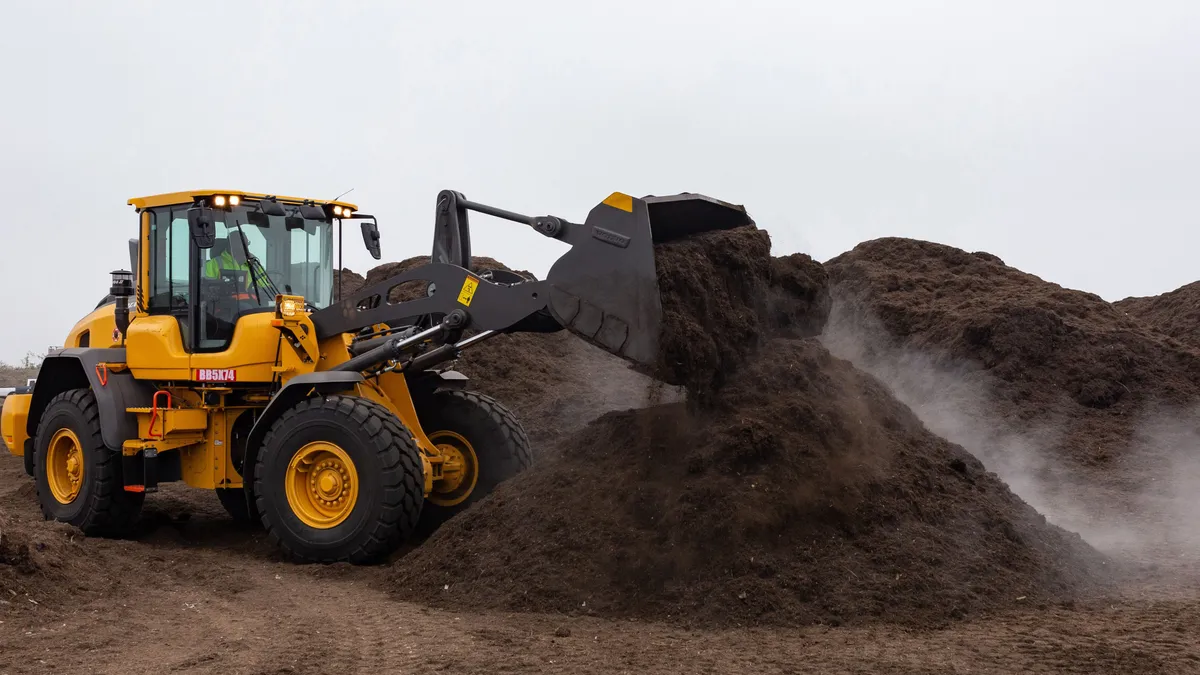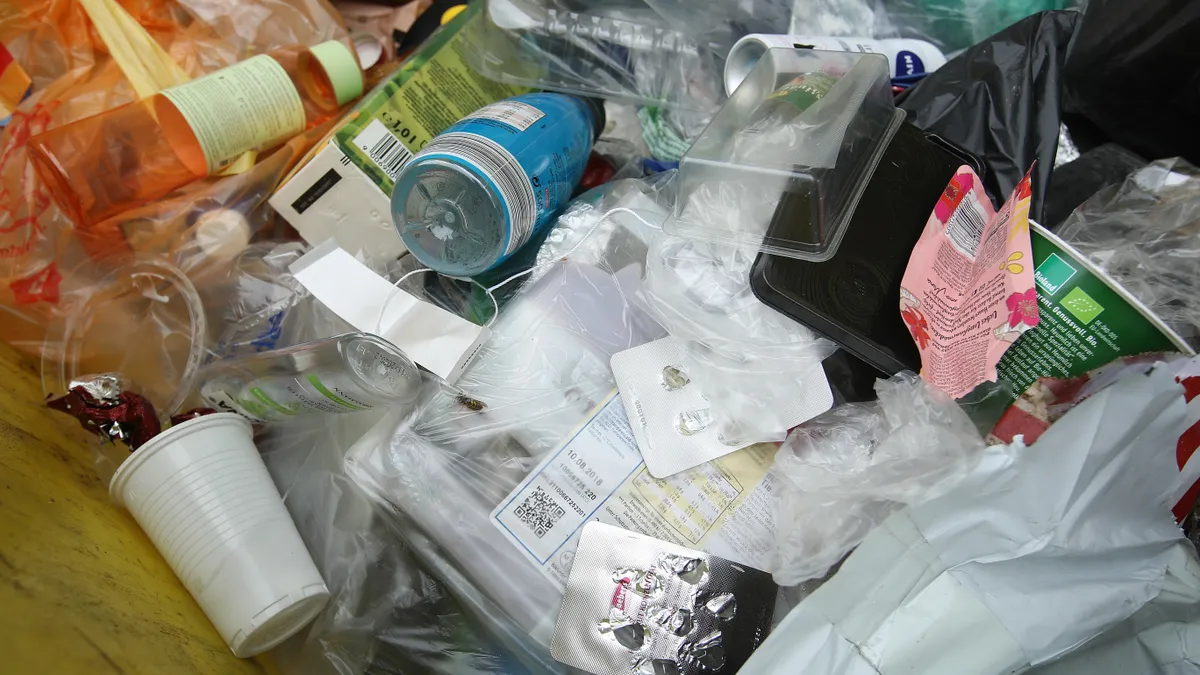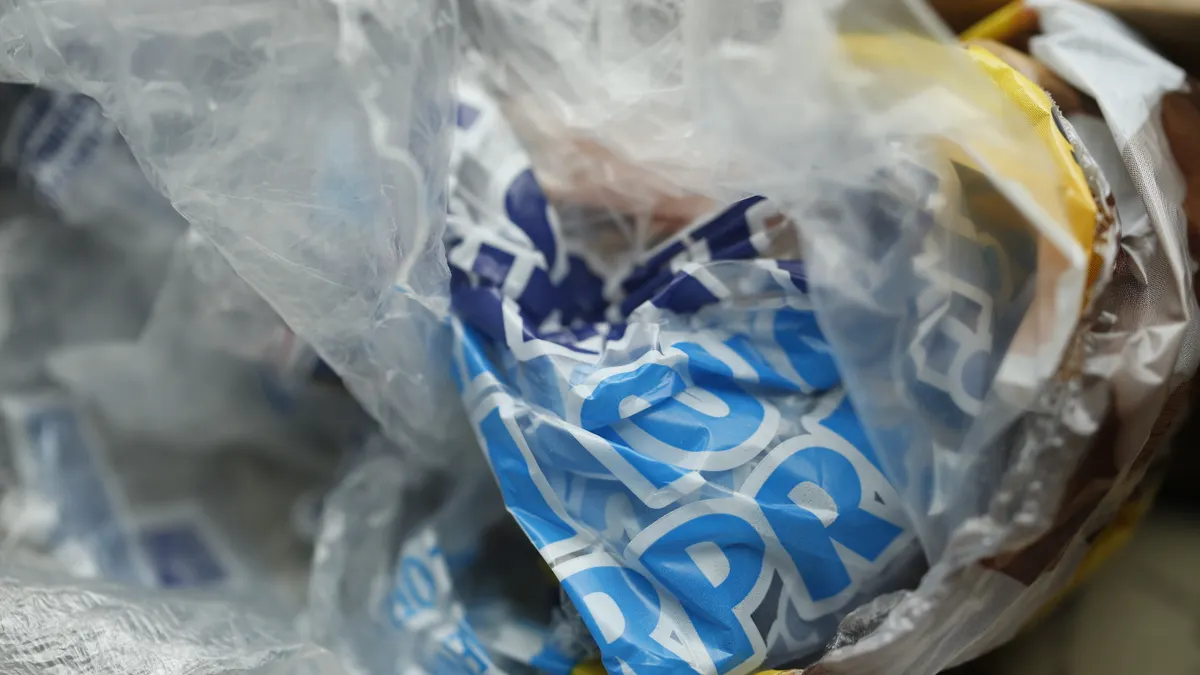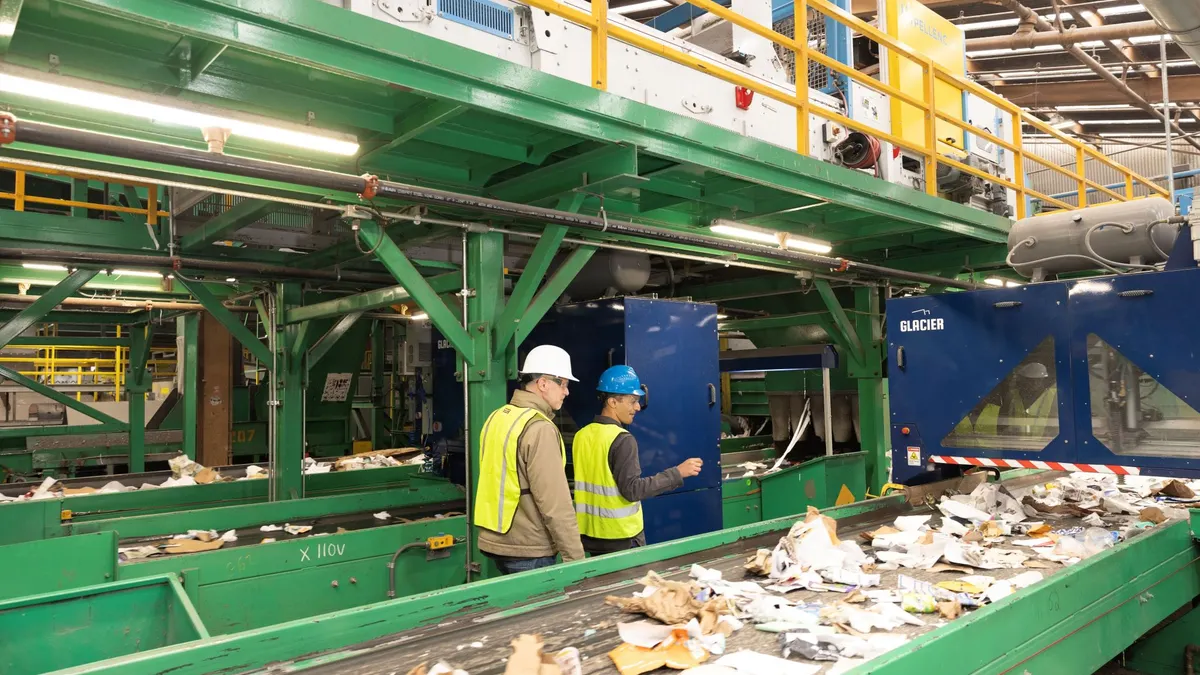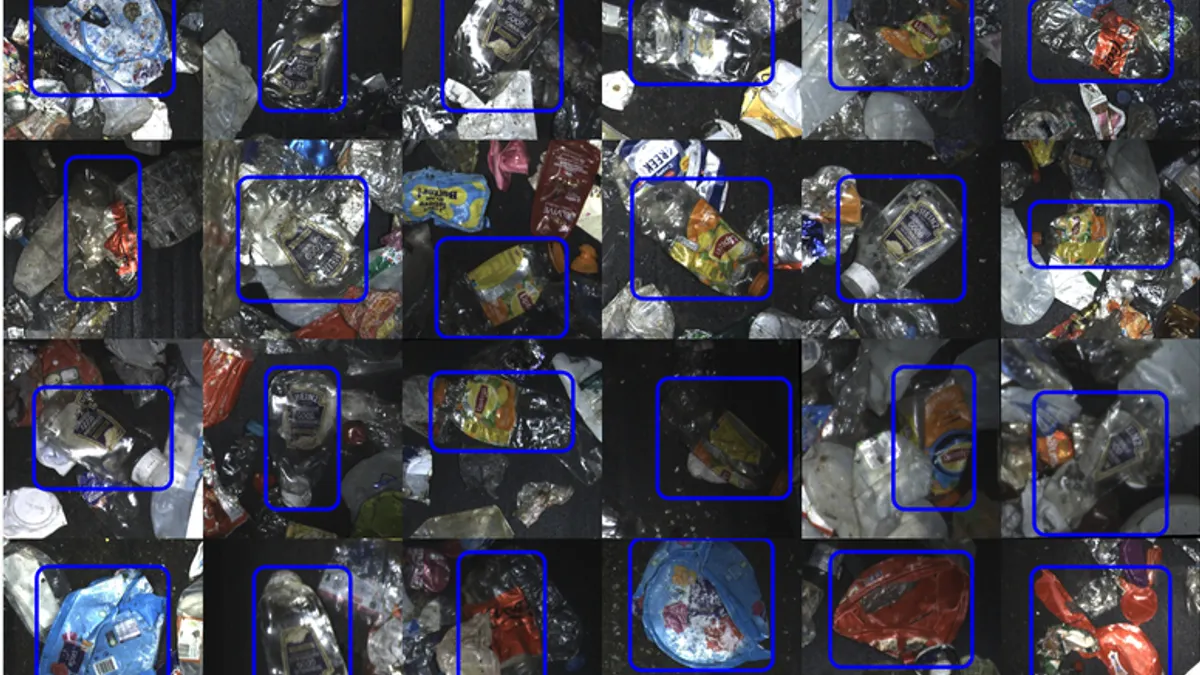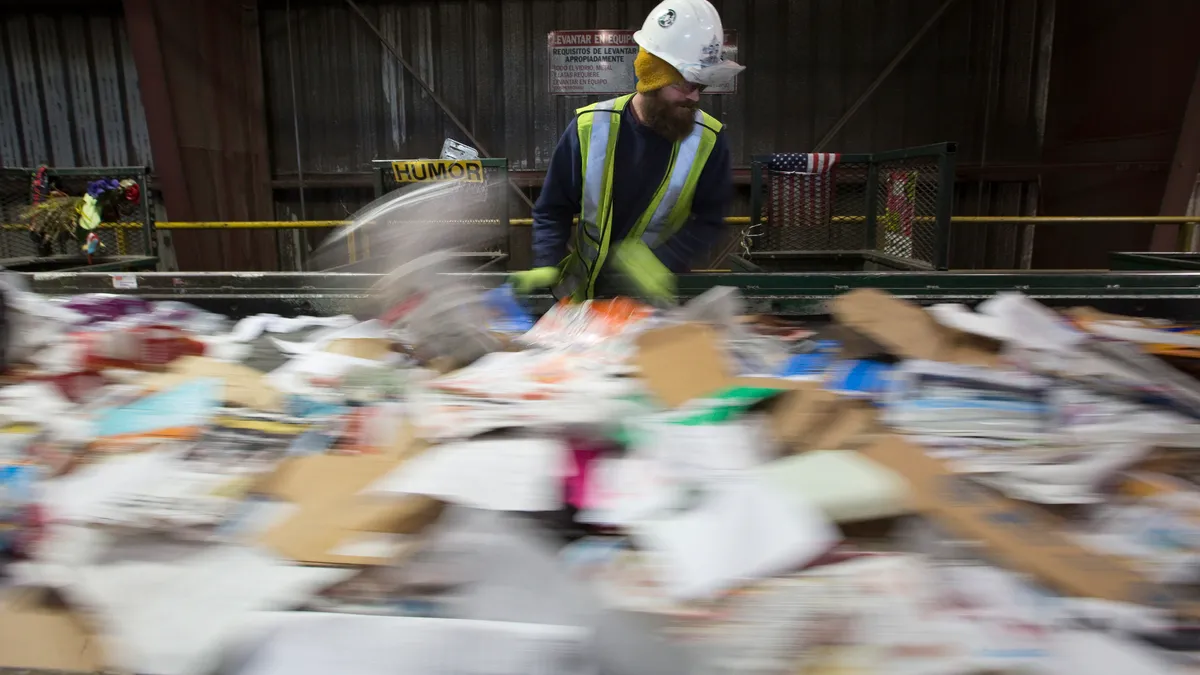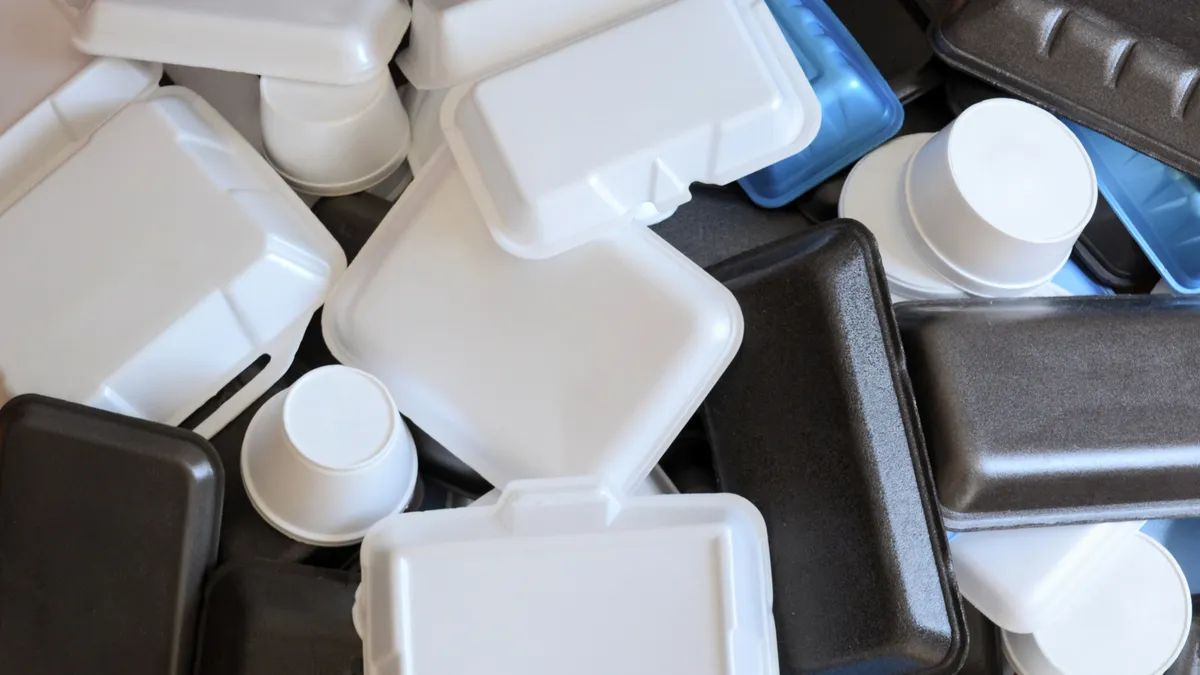UPDATE Sept. 30: California will become the first state in the country with an EPR program for textiles now that Gov. Gavin Newsom has signed SB 707 into law.
The law, supported by recycling and waste groups as well as several haulers, is meant to divert textiles from residential and commercial waste. It will require producers of certain apparel and other textile products to establish a producer responsibility organization, which will create a plan for collecting, repairing and recycling such material.
Newsom signed a handful of other laws over the weekend, including ones approving updates to the state’s SB 1383 organics procurement requirements and carpet stewardship program, a bill expanding California’s PaintCare program and more.
Newsom also vetoed two more bills, including one to create a “manufacturer responsibility program” for marine flares. In a veto letter, Newsom said he supports the idea but felt the bill “lacks a comprehensive program scope to effectively achieve the goal of protecting human and environmental health” and wouldn’t cover necessary costs or provide “appropriate enforcement authority.”
Newsom also vetoed a bill to make certain vehicle traction battery producers responsible for the end-of-life management of their products. He said the bill is too burdensome for the state’s Department of Toxic Substances Control to implement and called on sponsors to “continue working with stakeholders” on producer responsibility concepts.
UPDATE Sept. 23: California Gov. Gavin Newsom recently signed several waste and recycling bills into law and vetoed two others.
Vetoes included AB 457, which would have decreased the redemption value for wine and spirits contained in a box, bladder or pouch less than 24 oz. from 25 cents to 10 cents. Newsom wrote in a veto letter that the move would “create confusion for recyclers.”
He also vetoed SB 972, which called for CalRecycle to provide more technical assistance to help local jurisdictions meet organics recycling requirements under SB 1383, saying in a letter that the bill is “duplicative of existing efforts.”
Newsom did sign SB 1046, which requires CalRecycle to develop a program environmental impact report for small to medium composting facilities, and SB 2902, which waives rural jurisdictions from complying with certain requirements until 2037.
He also signed a bill restricting the sale of propane cylinders that are not reusable or refillable, as well as a bill that extends a market development payment program for reclaimers of plastic beverage containers to 2027.
Sept. 3: California state legislators approved a range of waste and recycling bills last week before wrapping up their session on Aug. 31. The bills will now head to Gov. Gavin Newsom for a final decision by Sept. 30.
If these bills are signed, California could become the first state to establish an extended producer responsibility program for textiles. The state is also poised to update its paint EPR program as well as its carpet management program.
Legislators also passed several bills related to SB 1383, the state’s complex organics recycling law. However, bills related to compost facility zoning, packaging EPR updates and other topics failed to pass before the end of the session.
Additionally, the legislature passed multiple packaging-related bills with implications for the waste and recycling industry. Notable examples include an effort to standardize expiration date labels, which supporters say could reduce food waste, and a bill to tighten the state’s regulation of plastic grocery bags. Both measures saw support from notable waste industry groups.
Read on for more highlights from the waste and recycling bills that previously made it through California’s legislative crossover deadline in May:
| Bill number | Topic | Status |
| SB 707 | EPR for textiles | Signed |
| SB 1143 | EPR for paint | Signed |
| AB 863 | Carpet stewardship update | Signed |
| SB 1066 | Marine flare management | Vetoed |
| SB 972 | Organics recycling technical assistance | Vetoed |
| SB 1046 | Compost facility permit model | Signed |
| AB 2346 | SB 1383 procurement requirement updates | Signed |
| AB 2902 | SB 1383 collection requirements delays | Signed |
| SB 1280 | Reusable or refillable propane cylinders | Signed |
| AB 457 | Redemption value for wine and spirits | Vetoed |
| AB 2511 | Market development payment | Signed |
| SB 615 | End-of-life management for vehicle traction batteries | Vetoed |
| SB 1231 | EPR for packaging updates | Held in Assembly committee |
| SB 1045 | Compost facility zoning model | Held in Assembly committee |
| AB 2514 | Biomethane procurement and biosolids updates | Ordered to inactive file |
| SB 1208 | Prohibits discharge permit for proposed East Otay Mesa landfill | Stalled in Assembly |
SB 707: EPR for textiles
California’s potentially first-in-the-nation EPR program for textiles would require producers of certain apparel and other textile products to establish a producer responsibility organization. If the bill is signed into law, CalRecycle will need to adopt regulations to implement the program no earlier than July 1, 2028. The PRO will need to submit a plan for collection, repair and recycling of such textiles by July 1, 2030.
Recent updates to the bill include adding online marketplaces with sales over $1 million and requiring the PRO to develop a needs assessment for covered products. The PRO’s plan will also now be required to include details such as how to manage PFAS in products and how products will reach “responsible end markets.”
The California Product Stewardship Council, the main sponsor, has said textiles are the fastest-growing category of residential and commercial waste in the state. CPSC said the cost of managing such material often falls on thrift stores and secondhand markets, along with local governments that “face costly challenges expanding textile collection and sorting” while clothing producers continue to churn out new products.
The bill garnered support from Republic Services, Recology, local chapters of the Solid Waste Association of North America, National Stewardship Action Council, Californians Against Waste, Resource Recovery Coalition of California and a coalition of brands and environmental groups.
The bill was first introduced during the 2023 legislative session and passed the Senate. However, it was converted into a two-year bill to update language and accommodate more stakeholder input, including from retailers and the apparel industry that had originally opposed elements of the bill.
The American Apparel and Footwear Association recently said in a statement the version passed last week “is more implementable and better supports industry efforts towards circularity than what was introduced almost two years ago.” The group said this was due in part to stakeholder engagement and amendments that take into account brands’ resale efforts and remove liability for counterfeit products.
SB 1143: Once a HHW bill, now a paint update
California could soon expand its paint EPR program to cover more types of paint products if Newsom signs SB 1143. Previously, PaintCare covered only architectural paint, but the new bill now includes furniture paint, paint for boats and other types.
Paint is a significant source of household hazardous waste in California, and the updated bill aims to make the program less confusing for residents, according to state Sen. Ben Allen, who supported the bill. The American Coatings Association also supported the bill, along with WM, Waste Connections and multiple other waste or recycling groups.
The bill underwent numerous revisions over the last few months. It originally aimed to establish an EPR program for a wide range of HHW. The National Stewardship Action Council, the bill’s sponsor, said it plans to continue negotiations for addressing other kinds of HHW in the coming year.
“Passing EPR framework legislation is a multi-year process, and we made enormous progress this first year,” said Executive Director Heidi Sanborn in a statement. “What was best for California was to ensure the PaintCare expansion got done to keep costs down and the program working, and then tackle the rest of the HHW stream next year allowing more time for negotiation.”
SB 1383 updates
Legislators passed numerous changes to SB 1383 requirements this year. That law calls on local jurisdictions to implement organics collection and procure more organic materials, among other elements. Some of these bills were inspired by a 2023 report from the Little Hoover Commission, an independent state oversight agency. Many of the bills that passed had some mixture of local government support, via groups such as the League of California Cities, as well as from industry entities such as Republic Services.
Among the most notable is SB 2902, which would waive rural jurisdictions from complying with collection and procurement requirements until Jan. 1, 2037. The bill saw support from groups such as the California State Association of Counties.
SB 2346 would make multiple changes to CalRecycle’s organics procurement requirements, which are currently set to ramp up by January 2025. Highlights include allowing jurisdictions “to invest in specified activities related to organic materials recycling in lieu of procuring recovered organics,” while also expanding the list of eligible products.
SB 1046 would require CalRecycle to develop a program environmental impact report for small to medium composting facilities. The goal is to streamline the process of siting and opening new composting facilities, which has been a pain point for local jurisdictions and the organics recycling industry.
SB 972, which directs CalRecycle to provide more technical assistance to local jurisdictions, also passed. Assembly amendments removed a requirement for the agency to submit progress reports about its implementation of the law and technical assistance provided.
Other notable bills
- AB 863: The bill updates the governance structure of the state’s current carpet stewardship program. Previous versions would have converted the program into a full EPR program. Recent amendments also removed provisions that would have widened the program to include carpet padding and some types of “resilient flooring” such as vinyl, linoleum and rubber. NSAC sponsored the bill.
- SB 1066: The bill requires manufacturers to create a plan for the collection, transportation, and “safe and proper management” of marine flares and certain other “pyrotechnic devices” used in recreational activities. The bill was originally pitched as an EPR program, but is now considered a “manufacturer responsibility program for the safe and proper management of marine flares.”
- SB 1280: The bill will require CalRecycle to adopt regulations to prohibit the sale of propane cylinders that are not reusable or refillable on and after Jan. 1, 2028. The bill’s authors estimated that more than 4 million one-pound disposable propane cylinders are sold in the state per year. Supporters included Californians Against Waste, California Waste & Recycling Association, Republic Services, WM, the Solid Waste Association of North America’s local chapters and others.
- SB 615: The bill calls for certain vehicle traction battery producers to be responsible for the end-of-life management and recycling of such batteries, and to fully fund the collection of the batteries.
Correction: A previous version of this story incorrectly described the scope of AB 863, which is not considered a full extended producer responsibility approach for carpet.




